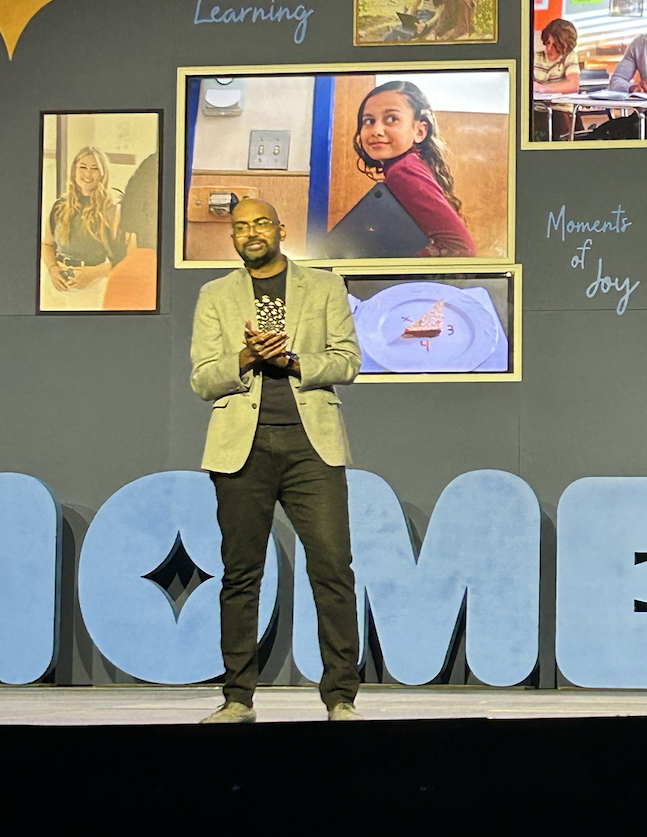Drop the company name Instructure on the average educator and you may get a blank stare in return. Now mention the company’s flagship product Canvas and be ready for a flash of instant recognition. Founded in 2008, Instructure reports having more than 6000 customer organizations with more than 35 million users around the world in both K12 and higher education.
I had the opportunity to attend InStructure Con23 in Denver last month—the company’s first user conference since the pandemic—and met many educators, partner companies, and senior leadership including Chief Product Officer Shiren Vijiasingam, Ryan Lufkin, Vice President of Global Strategy, and CEO Steve Daly. We hit on a number of topics that will affect the way educators and students teach and learn, including post-pandemic behaviors, student security, the pursuit of equitability and education, and the future of hybrid learning. Plus of course, AI, AI and yes, a little more AI. This was the first Innovations podcast recorded in person, but it certainly won’t be the last.


More Highlights from InstructureCon23:
The company and Khan Academy announced a partnership that brings Canvas, the anchor of the Instructure Learning Platform, and Khan Academy’s AI-powered student tutor and teaching assistant, Khanmigo. This new solution enable educators with an integrated Khanmigo experience that supports human-driven, technology-enhanced essay feedback and grading, lesson planning and rubric creation. This solution is a large step forward in delivering personalization for each student while allowing busy educators to scale their excellence and impact in ways unimaginable a few short months ago.
For students, the use of generative AI presents significant opportunities and challenges. In a world filled with intelligent agents and easily-accessed answers, the need for tools that guide, enhance and support active learning is critical. Initially focusing on student writing, Instructure and Khan Academy aim to support students and their learning through Khanmigo’s tutoring capabilities. By helping students use generative AI ethically, equitably, and with integrity, demonstrating an authentic work product becomes easy and clear.
Instructure’s Learn Platform independent research team, along with Khan Academy’s educational research team, will jointly design research for early adopters, to measure the impact of these tools on student outcomes – delivering insight into the efficacy of the tools and the utilization of AI to assist teachers and students in achieving their learning outcomes.
